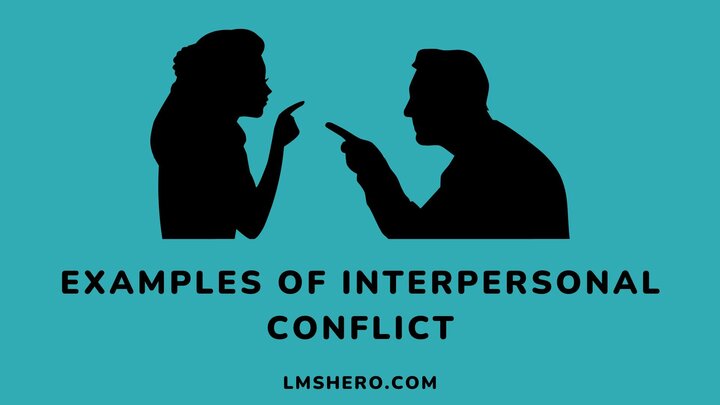Conflict is an inevitable part of any relationship, whether personal or professional. However, it’s not the presence of conflict that determines the health of a relationship—it’s how conflicts are handled. Mastering interpersonal conflict resolution skills is essential for maintaining strong connections, fostering understanding, and promoting a harmonious environment. Whether it’s a disagreement with a friend, a partner, or a coworker, knowing how to approach conflicts constructively can transform potential confrontations into opportunities for growth and collaboration.
Why Mastering Conflict Resolution Matters
Conflict, when managed poorly, can lead to misunderstandings, resentment, and a breakdown in relationships. However, when handled well, conflict resolution can lead to deeper trust, better communication, and stronger bonds. The ability to resolve conflicts effectively is not just a valuable life skill but also a cornerstone of emotional intelligence. It empowers you to navigate disagreements in a way that respects everyone’s perspectives, maintains mutual respect, and ultimately strengthens relationships.
Essential Conflict Resolution Skills to Master
1. Active Listening Active listening is crucial to understanding the other person’s point of view. It involves giving your full attention, maintaining eye contact, and refraining from interrupting while the other person speaks. Practice reflective listening by summarizing what the other person has said and validating their emotions. This technique shows that you value their feelings and perspectives, creating an atmosphere of mutual respect.
2. Maintain Composure When conflicts arise, emotions can run high. It’s important to remain calm and composed, even if you feel defensive or frustrated. Taking deep breaths, pausing to collect your thoughts, and speaking in a steady voice can help you maintain control over the situation. Composure not only prevents escalation but also sets a positive tone for resolving the conflict constructively.

3. Use “I” Statements Communicating your feelings without sounding accusatory is vital. Instead of saying, “You never listen to me,” rephrase it as, “I feel unheard when we don’t discuss things openly.” Using “I” statements helps you express your feelings without placing blame, which in turn reduces the likelihood of the other person becoming defensive.
4. Understand Nonverbal Communication Nonverbal cues such as body language, facial expressions, and tone of voice can significantly impact how your message is received. Be aware of your nonverbal signals and ensure they align with your intention. Maintain an open posture, use a neutral tone, and avoid gestures that may seem aggressive or dismissive.

5. Empathy and Perspective-Taking Empathy involves putting yourself in the other person’s shoes and understanding their emotions and motivations. Even if you don’t agree with their point of view, acknowledging their feelings can go a long way toward de-escalating tension. Perspective-taking also helps you understand the underlying causes of the conflict, which can be essential for finding common ground.
6. Stay Solution-Focused Rather than rehashing past grievances or focusing on who’s to blame, aim to find a solution that works for both parties. Frame the conversation around what you can do to move forward together. Brainstorm potential solutions and discuss the pros and cons of each option. This collaborative approach promotes teamwork and reduces the chances of future conflicts.
7. Know When to Take a Break Sometimes, emotions can become so intense that it’s best to take a temporary step back. If a conversation is heading into an unproductive or hostile direction, suggest pausing and reconvening after a short break. Use this time to cool down, reflect on what’s been said, and come back to the conversation with a clearer mind.

8. Be Open to Feedback Conflict resolution is a two-way street. Be prepared to listen to feedback from the other person and show a willingness to change if needed. This openness demonstrates maturity, humility, and a commitment to improving the relationship. Accepting constructive criticism gracefully also helps build trust and shows that you’re invested in mutual growth.
9. Practice Forgiveness Holding onto grudges and dwelling on past conflicts only prolongs negative feelings. Once a resolution has been reached, practice forgiveness to move forward. Forgiveness doesn’t mean forgetting what happened or excusing any wrongs; it means letting go of the emotional burden so that it doesn’t affect future interactions.
10. Learn from Every Conflict Every disagreement offers an opportunity to learn and improve your conflict resolution skills. After resolving a conflict, take a moment to reflect on what worked well and what could have been done differently. This reflection will help you build stronger interpersonal skills and prepare for future challenges.
Applying Conflict Resolution Skills in Daily Life
To truly master conflict resolution, it’s essential to practice these skills regularly. Start by applying them in low-stakes situations, such as conversations with friends or casual disagreements at work. As you gain confidence, use these strategies in more significant conflicts. Over time, they will become second nature, helping you handle conflicts with grace and empathy.
When to Seek Professional Help
While these skills can take you far, some conflicts may require external support. If you find that conflicts in your relationships are recurrent or particularly difficult to manage, it might be helpful to seek professional coaching or therapy. A trained expert can guide you and your loved ones through complex emotions, help you refine your conflict resolution skills, and provide strategies tailored to your specific situation.
Conclusion
Mastering interpersonal conflict resolution is an essential aspect of healthy relationships and personal growth. With practice and dedication, you can develop these skills and become better equipped to navigate disagreements in a way that promotes understanding, trust, and respect. Whether at work or at home, conflict resolution skills can transform relationships, allowing them to flourish even in the face of challenges.

